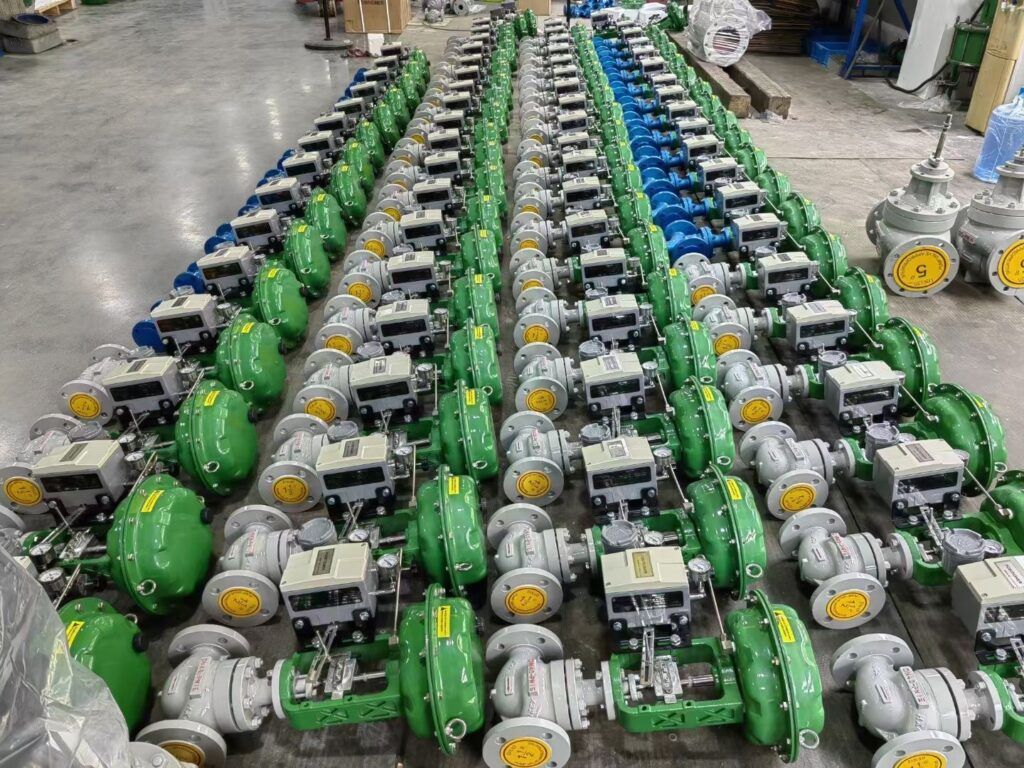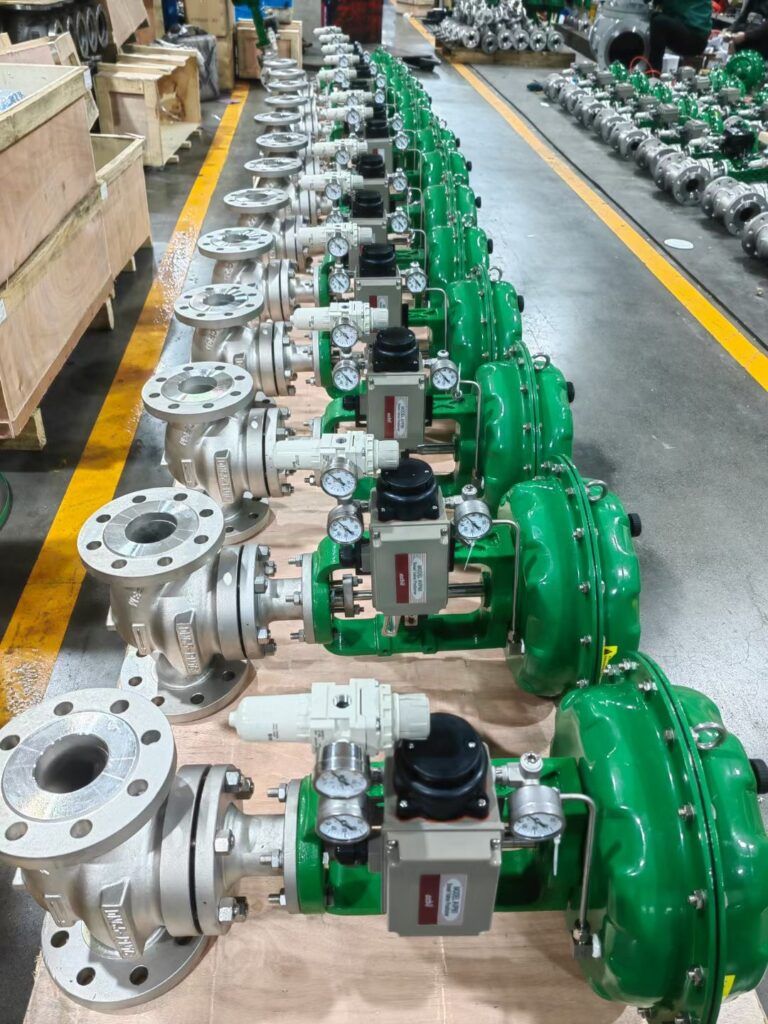แท็ก
ติดต่อเรา
วาล์วควบคุมลม: หัวใจสำคัญของอุตสาหกรรมสมัยใหม่
- เช้าเจียง
Pneumatic control valves are indispensable devices in modern industrial automation. They switch airflow to ensure that system pressure remains constant, thus effectively controlling fluid flow. As various industries increasingly rely on automation, pneumatic control valves play a crucial role in enhancing production efficiency and safety.
What are Pneumatic Control Valves?
Pneumatic control valves are devices used to control the direction and pressure of airflow. They come in many types and can be classified based on their design, operation, function, size, and application. Pneumatic control valves can perform various functions, from switching single pathways to precisely controlling pressure and flow ratios.
Overview of Pneumatic Technology
Pneumatic technology involves using compressed air to create mechanical motion. It is widely applied in various sectors, including dentistry, construction, and mining. Pneumatic systems use compressed air as a power source, effectively transmitting and controlling energy.
How Do Pneumatic Control Valves Work?
Pneumatic control valves reduce pressure in a controlled manner through actuators and positioners. The controller monitors pressure fluctuations in real time and adjusts the air supply signal to the pneumatic positioner to ensure the valve opens when needed. When the air pressure applied to the diaphragm decreases, a spring closes the valve, maintaining system stability.
Types of Pneumatic Control Valves
Pneumatic control valves can be classified based on several criteria, including:
- Flow Path Quantity: Single or double
- Port Quantity: Number of inlet and outlet ports
- Operating Mechanism: Mechanism used to open or close ports
- Valve Status: Condition when not activated
Functional directional control valves are a major category of pneumatic control valves that can direct airflow or completely block it, widely used in hydraulic systems.
Major Types Include:
- Bidirectional Pneumatic Control Valves
- Three-Way Directional Control Pneumatic Valves
- Four-Way Directional Control Pneumatic Valves
- Pneumatic Spring-Loaded Valves
Advantages of Pneumatic Control Valves
Pneumatic control valves use compressed air to transmit and control energy, widely applied in production lines, train doors, and mechanical fixtures. Many industrial companies rely on the efficient operation of pneumatic control valves.
Advantages of Using Pneumatic Control Valves:
- Resource Abundance: Compressed air comes from the atmosphere and is virtually inexhaustible.
- Easy Transport: Compressed air can be easily delivered through pipes, with minimal distance constraints.
- High Safety: Pneumatic control valves do not produce sparks or explosions, making them suitable for flammable environments.
- Durability and Reliability: Pneumatic control valves have fewer components and are highly durable.
บทสรุป
Pneumatic control valves play a vital role in modern industry, promoting automation across various sectors due to their unique advantages, such as resource abundance, high safety, and durability. As technology continues to advance, the application scope and efficiency of pneumatic control valves will further improve, providing greater support for production and management across industries.



